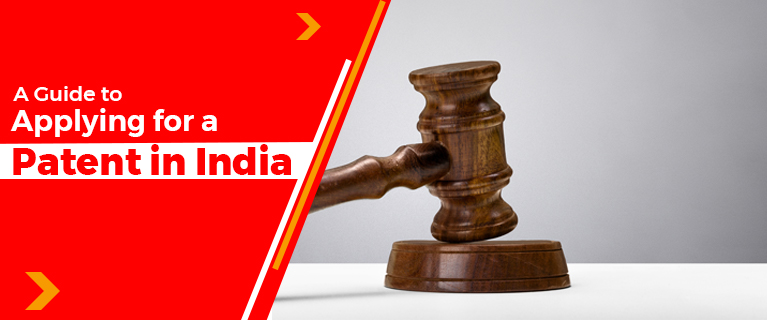A Guide to Applying for a Patent in India
In today's fast-paced and innovative world, protecting intellectual property is crucial for individuals and businesses. Patents play a vital role in safeguarding inventions, granting exclusive rights to inventors and providing legal recourse against infringement. If you have come up with a unique and valuable invention, applying for a patent is a prudent step to secure your intellectual property. However, navigating the patent application process can be complex and time-consuming. That's where a patent consultant comes in. In this blog, we will explore the significance of patents and the process of applying for a patent in India.
What is a Patent?
A patent is a legal document that grants exclusive rights to an inventor for a specified period, usually 20 years, to protect their invention from being used, sold, or manufactured without permission. Patents encourage innovation by providing inventors with a monopoly over their inventions, allowing them to reap the benefits of their hard work and creativity. In return, inventors disclose the details of their invention to the public, contributing to the overall growth of knowledge and technology.
Applying for a Patent in India:
Applying for a patent in India involves a series of steps that ensure your invention meets the necessary criteria for patentability. Let's explore the process:
1. Determine Patentability:
Before proceeding with the application, it is essential to determine the patentability of your invention. Patents are issued for new discoveries that take an innovative step and have practical industrial applications. Conducting a prior art search, which involves researching existing patents and publications, helps identify similar inventions and assess the novelty and inventiveness of your idea.
2. Document Your Invention:
Thorough documentation of your invention is crucial for the patent application process. Keep a detailed record of your invention, including its concept, design, functionality, and any unique features. Documenting your invention in an inventor's notebook or through digital records helps establish the timeline of invention and serves as evidence during the patent examination process.
3. Consult a Patent Consultant:
Engaging a patent consultant can significantly streamline the patent application process. A patent consultant is a professional with expertise in intellectual property law and the patent system. They assist inventors in understanding the intricacies of the patent process, conducting prior art searches, drafting patent applications, and navigating the complexities of patent law. By working with a patent consultant, you can ensure that your patent application meets the necessary requirements and increases the chances of a successful outcome.
4. Draft a Patent Application:
With the assistance of a patent consultant, prepare a comprehensive patent application. The application should include a detailed description of the invention, including its technical aspects, functionality, and any unique features. The claims section defines the scope of protection sought for your invention and should be drafted carefully to cover the novel and inventive aspects. The patent consultant will help you draft the application in compliance with legal requirements and maximise its chances of approval.
5. File the Patent Application:
Once the patent application is complete, it is time to file it with the Indian Patent Office. The application can be filed online through the official website of the Indian Patent Office or physically at the patent office. Pay the requisite fees and submit all the necessary forms and documents as per the guidelines provided by the patent office.
6. Patent Examination and Grant:
After filing, the patent application goes through the examination process, where the patent office reviews its novelty, inventive step, and industrial applicability. The patent examiner may request additional information or amendments to clarify or strengthen the patent claims. Responding to office actions and cooperating with the patent examiner is crucial to ensure a favourable outcome. If the patent application is deemed patentable, the patent will be granted, and you will have exclusive rights to your invention for the specified period.
Read also this -: The Benefits of Working with a Patent ConsultantConclusion
Applying for a patent in India is a crucial step in ensuring the legal protection of your idea and any potential financial rewards. However, it's essential to conduct a thorough patent search, determine whether your invention qualifies for patent protection, hunt for pertinent prior art, and properly draft a patent application with the assistance of a patent consultant before submitting a patent application. By following these recommendations, you may increase your chances of getting a patent and protecting your intellectual property. Consider the patent application process carefully if you want to protect your concept and make sure it can lead to the success you deserve.




Comments
Post a Comment